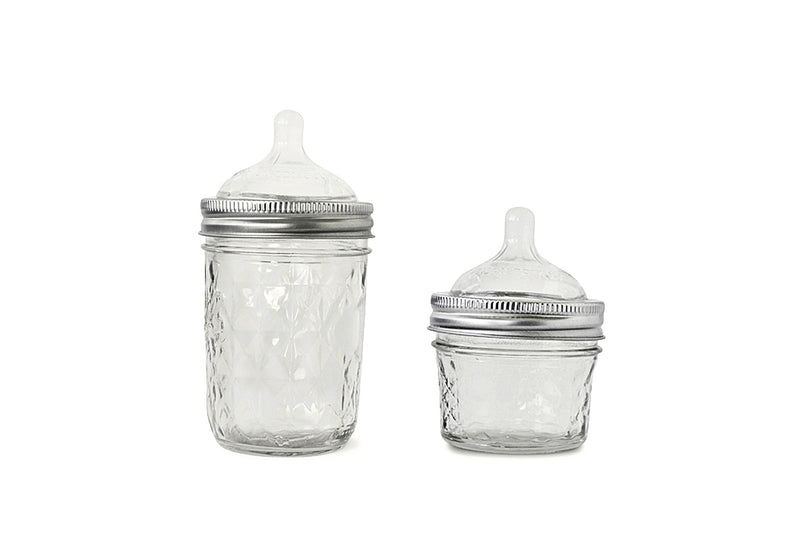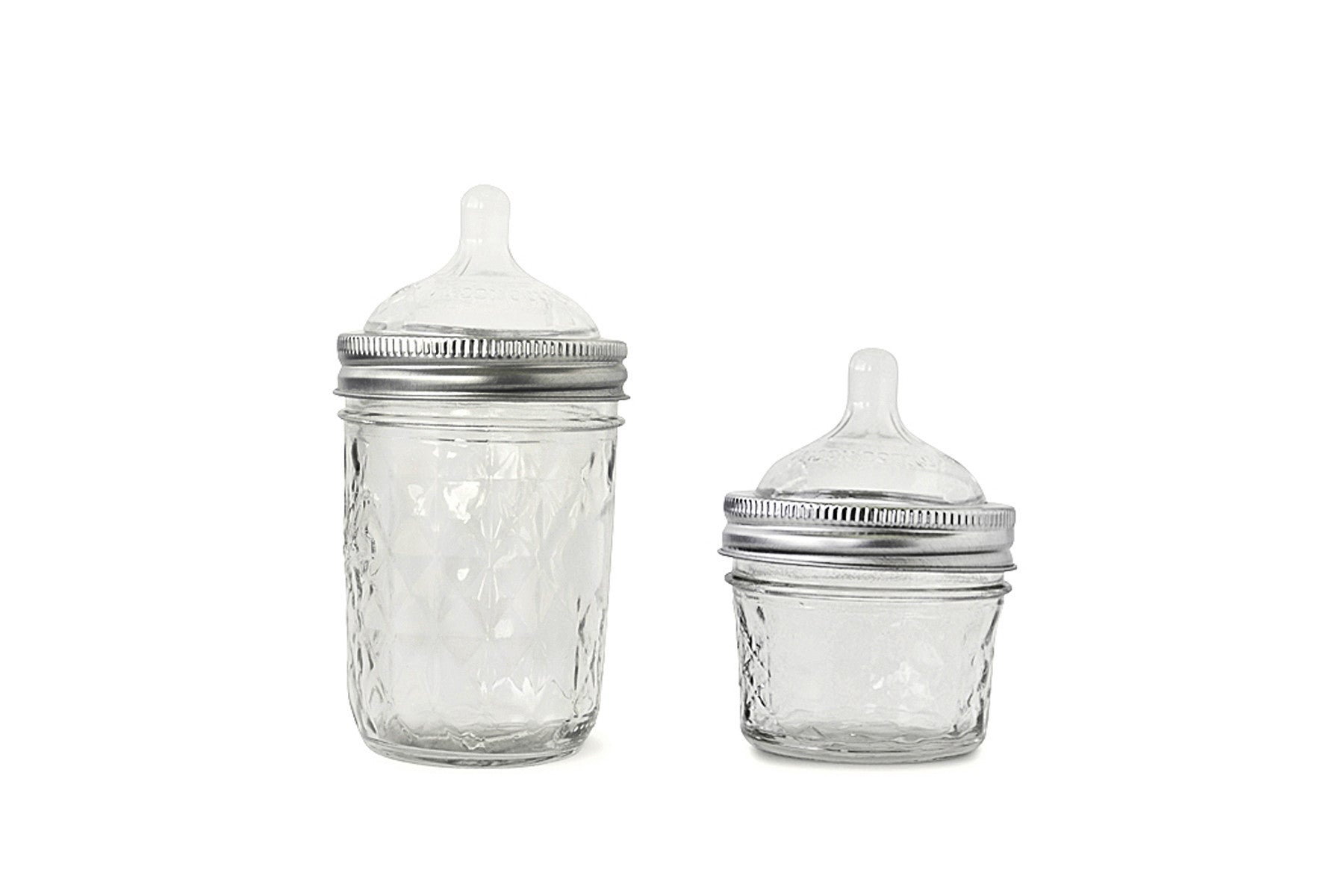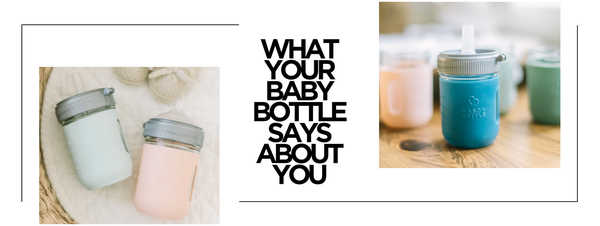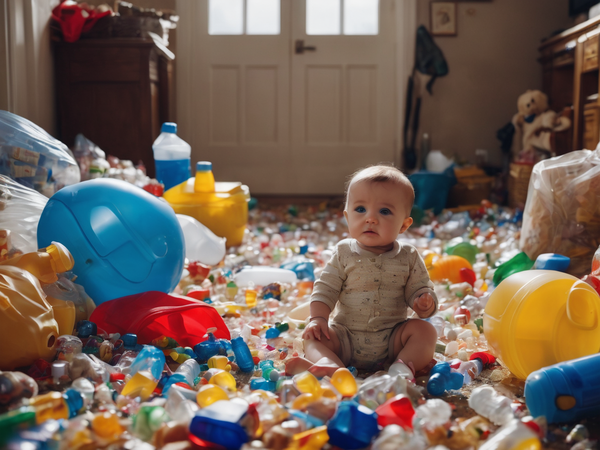
When it comes to bottles, bigger isn’t always better. As a matter of fact, same goes for nipples.
This post wraps up a four-week series about bottle feeding myths and FAQs. Today’s topic is one that was emailed into us a lot during the Kickstarter:
What size bottles and nipples do I need?
Note: If you missed the earlier posts in this series, you can check them out here:
Alright, so back to bottle sizes: first and foremost, you need to discuss the specifics of feeding with your pediatrician. How much your baby will take at each feeding will vary depending upon lots of factors. That said, you will still probably want to buy a few bottles before baby arrives, so here's what you need to know:
Most parents start off using four ounce bottles with their baby. Here are a couple things to keep in mind when using four ouncers:
-
Formula fed newborns will generally eat 2-3 ounces every few hours.
-
If you are pumping for a breast-fed newborn, the serving size can vary quite a bit. Kelly Mom has a handy little calculator you might want to check out.
-
By three months, your baby could be drinking as much as five ounces per feeding, but you may still prefer to use four ounce bottles for a few reasons:
-
Breastfed babies drink less milk than formula fed babies because breast milk is a more efficient source of nutrition.
-
It’s not recommended to reuse leftover breast milk from one feeding to the next, so rather than give baby a larger bottle he may not finish, you may prefer to give a smaller portion, and then refill it if baby is still hungry.
-
4oz bottles are lighter in weight, so baby might prefer holding that size as she becomes able to feed herself.
Once your baby outgrows the four ounce bottle, an eight ounce bottle is generally the next size up. You can wait and buy these as needed, but if you’re having a shower, you might as well get a couple of these as well.
When to Go From One Nipple Size to the Next
It's recommended to give your baby the slowest flow nipple that they will accept. This will give the baby the most control over the flow and help reduce the risk of upsetting their tummies. This is why we sell Mason Bottles and DIY Kits with Slow Flow Nipples.
We also offer Medium, Fast and Fastest Flow Nipples, so that the bottle can grow with yours baby. As he/she gets older, you may notice they become impatient with the milk flow and you need to change to a faster-flowing size. When you do make the switch, watch for signs of gas or discomfort to make sure the milk isn’t coming out too fast.
Here's a summary of the sizes we offer and some guidelines on when to use them:
-
Slow Flow Nipples: 0-3+ Months ( or longer is baby is happy)
-
Medium Flow Nipples: 3-6 Months
-
Fast Flow Nipples: 6+ Months
-
Fastest Flow Nipples: 6+ Months and beyond. (These can be great for helping transition your baby to a sippy cup. They also work well for smoothies or other pureed foods)






Hello. I have bought the mason bottles and just started using them, starting with the smallest size. It seems the milk is leaking from one of the holes, is there a way to stop that by closing that hole? Thx. Elodie
I love these products! We have been using them since he was 2 months. I was wondering if the fastest flow would be good for cereal in the bottle?
Amazing! I like to share it with all my friends and hope they will like this information.https://www.thekidspoint.com/best-glass-baby-bottles/
We registered for these as a shower gift. We try to minimize the use of plastics in our home. I loved the concept and was excited to receive these. The slow flow was a little fast for my little guy. My husband contacted the company and they sent us a link to the Extra-Soft Infant Nipple. It’s a slower flowing nipple and works perfect for him. Great product and great customer service.